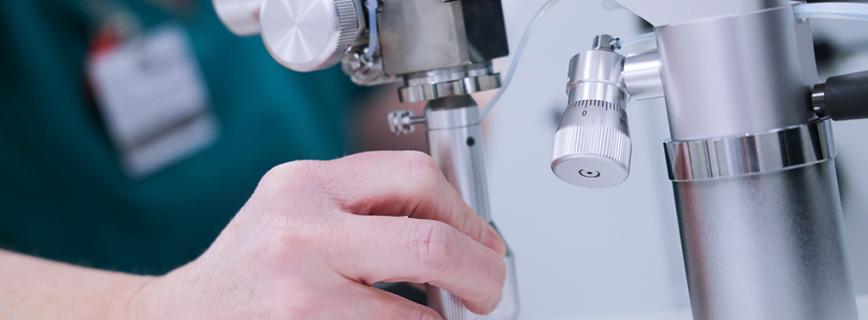
Ovulation is the release of a mature egg from its developing follicle in the outer layer of the ovary. This usually occurs approximately 14 days before the next menstrual period (the 14th day of a 28-day cycle).
Ovulation test may include assessments for:
- Urine Luteinizing Hormone (LH) ovulation predictor kits
- Progesterone level on day 21 of the menstrual cycle
- Basal body temperature (BBT)
- Transvaginal ultrasound
Luteinizing Hormone (LH)
About LH:
The female menstrual cycle is under the hormonal control of the endocrine system, which involves the hypothalamus, pituitary gland, and ovaries. When the endocrine system is functioning properly, the hormones released by the ovary will eventually trigger a marked release of leutenizing hormone (LH). This is known as the “LH surge.” The rise in LH will stimulate the rupture of the ovarian follicle and the release of oocyte into the abdominal cavity.
LH Tests:
LH tests are used in the process of a fertility treatment to help evaluate ovarian function by testing for the LH surge. Urinary LH kits test for a form of LH that has an extended life span due to transformation in the urine. These kits are marketed for home testing for the rise in LH prior to ovulation. With adequate monitoring in the setting of our fertility center, you will not need to do urinary LH testing unless specifically directed by a physician.
Progesterone Level Fertility Treatment Ovulation Test
About Progesterone:
Progesterone is produced in the ovary after ovulation and is instrumental in supporting the lining of the uterus and the early embryo. A progesterone level drawn on day 21 or approximately seven days after the date of suspected ovulation can be an indicator of ovulatory function and used to evaluate strategies relating to fertility treatment. A level greater than 10 usually indicates that ovulation has occurred and that adequate progesterone is being made to support an early pregnancy.
Treatment Options:
In patients suspected of having inadequate progesterone secretion after ovulation (known as a luteal phase defect), a supplemental progesterone fertility treatment may be administered. There are several forms of progesterone available, including vaginal suppositories and injectable progesterone. All are equally as effective as a potential fertility treatment.
Ovarian Reserve Testing
About ovarian reserve:
Ovarian reserve refers to the number of oocytes you have remaining in your ovaries compared to most women your age. Women in their 20’s have hundreds of thousands of eggs, and those in their thirties have tens of thousands. Each month one oocyte is ovulated and hundreds go away naturally.
Ovarian reserve testing options:
When attempting to test for a woman’s ovarian reserve, the clinician is trying to predict how well her ovaries are responding to the hormonal signals from her brain. The most common test to evaluate ovarian reserves are
- AMH (andti-mullarian hormone)
- Antral follicle count (the number of follicles seen on each ovary by ultrasound
- Baseline follicle stimulating hormone (FSH)
Why choose ovarian reserve testing?
Ovarian reserve testing is more important for women who are planning to undergo IVF or have increased risk of reduced ovarian reserve, such as:
- over 35 years old
- family history of early menopause
- single ovary
- history of previous ovarian surgery, chemotherapy, or pelvic radiation therapy
- unexplained infertility
- a previous poor response to gonadotropin ovarian stimulation
